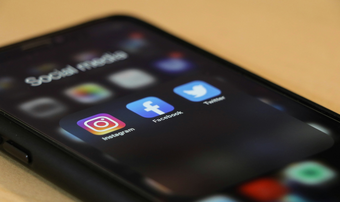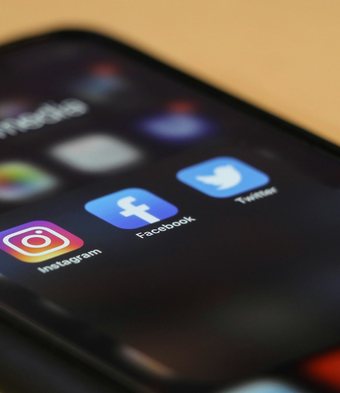Mohamed Al-Fayed and responding to sexual abuse

Warning: This article contains descriptions of sexual abuse and covers sensitive themes. It may not be suitable for some of our younger readers. Please read with caution.
The first lady on the programme said: “I went back to Harrods about a year ago - probably the first time since I left - and I knew if I could walk through, and come out the other side, I’d be in a good place to be talking to you.”
The second: “When I walked through the doors to start my job there I was excited. At no point in time did I ever anticipate being on the receiving end of an attempted rape.”
The third: “I joined Harrods because I wanted to be a buyer, and I ended up working for an absolute monster.”
The fourth: “I think he damaged me in some way. He’s just left a scar.”
If you haven’t yet watched the BBC’s documentary about allegations of sexual abuse against Mohamed Al-Fayed, it will be up on IPlayer for the next year. It tells a story of coercion and cover-up, violence against women and young girls, and abuse of power.
It is extremely hard-hitting. I actually had to pause it several times to reflect on what I had just heard. Sometimes there are stories which I really don't want to have to write about (and you probably don't want to read about either): we know that the details will be distressing and disturbing. But maybe, just maybe, those are the stories which I really ought to write about: it is in the darkest of situations where God's light is needed the most.
Al-Fayed, who died last year at the age of 94, was well-known within British life for forty years: he owned Harrods, Fulham Football Club, the Ritz, Paris, and the former residence of Edward VIII, amongst other things. He is perhaps most famous for his links with the Royal Family, with his son Dodi’s brief, ill-fated romance with Princess Diana, which was recently catapulted back into the public eye by the hit Netflix show, ‘The Crown’.
In preparation for the documentary, the BBC had spoken to more than 20 women who worked at Harrods. Many of those who spoke were visibly upset. I have listed a few of the allegations below, and have retained the words of the women wherever possible.
- New employees would be asked to go for a medical to examine their sexual health. One said, “My results were actually sent directly to the chairman, so quickly that by the time I got back to my desk, he knew the results of my test.” Another commented, “There is no benefit to anybody in knowing what my sexual health is, unless you’re planning to sleep with somebody, which I find quite chilling now.”
- Al-Fayed would regularly seek hugs or a kiss on the cheek from young female employees. One personal assistant said: “He would grab your face, and he would push it to his lips. There was nothing you could do. He had his hands on your face” and that he was “basically grooming us”.
- When working late at night, Al-Fayed would invite - under false pretences - his assistants to his apartment. He would lock the doors behind them remotely. He would sometimes be dressed in nothing beyond a dressing gown. One woman said, “When he started to touch me, the first thing I said was ‘what are you doing?’ I genuinely felt confused by what was going on…He pushed me back on the sofa and climbed on top of me…I remember just thinking, ‘Whatever’s going to happen, just get it over with.’”
- Another said, “He started to get closer and closer and closer, and he pushed himself onto me and pushed me down on the sofa, putting his hands down my top and up my skirt, and he was getting heavier and heavier and heavier. I was scared. He just pushed himself on top of me, and I’m strong, and I started kicking him, and I kicked him and I kicked him and I kicked him and I kicked him off, and I kicked him really hard. I thought he was going to rape me.”
- Four women described being raped to the BBC. One even described his hands being around her throat. The words quoted in the documentary in this section were so graphic that I’ve decided not to reproduce them here.
Of course, the reason why Al-Fayed’s behaviour is making headlines today is precisely because of who he was: a billionaire businessman, a man linked with the Royals, the owner of some of Britain’s great institutions. For every Al-Fayed, there are thousands more cases of abuse which are not reported on, where the individuals are never unmasked: indeed, BBC News reported today that in London alone, between 2018 and 2023, a report of sexual violence or rape was made to the Met on average every 26 and a half minutes.
And that’s even before we consider other sexual crimes (and activities which are not considered criminal): many a Westminster politician has been brought down by allegations of sexual misconduct. Just last week Huw Edwards was sentenced over child pornography offences. And nor is it just limited to secular spheres: the evangelical world was rocked when Ravi Zacharias, the well-known apologist, was found to have solicited sexually explicit photos from more than 200 women, and had groped female massage therapists.
At CARE, we say we are for people, and of course, that we are for women, who are fully “made in the image of God”, just as men are, and are of equal dignity and value. This is the case across the areas we work on, from abortion, where we want women to feel truly informed before they make their decision, to the transgender debate, in which we believe in the right to single-sex spaces and single-sex sports, and of course, our work in sexual exploitation: CARE was instrumental in the adoption of the Nordic Model in Northern Ireland, which criminalises the purchase of sex, but not the sex workers themselves, who are, so often, vulnerable women who have been trafficked.
So how, as Christians, can we respond when we read of stories like the recent claims against Mohamed Al-Fayed? I write this with uncertainty (and very much, not an expert), but here are, I hope, three principles which can help us.
1. Lament and rage at evil
The Al-Fayed documentary makes for chilling viewing. My heart breaks for the women who have suffered such terrible abuse, and I feel compelled to pray for them. I have also felt stirred to lament, and to anger, at how one individual can be so selfish as to dehumanise another in this way.
For make no mistake about it: the deeds described are truly evil.
Occasionally, I encounter Christians who suggest we shouldn’t be allowed to get angry at things which are plainly evil, from a desire to not judge others. This seems to me to over-simplify what the Bible actually says. Yes, as we are sinners saved entirely by God’s grace alone, and we are in no position to think ourselves better than others. And yes, the person whose sin we ought to be most concerned with is ourself.
But that does not mean that evil does not exist, or that we are not allowed to lament it or to become angry about it.
There was one season in the Bible where “each man did as he saw fit” (Judges 21:25), in which evil was allowed to go unchallenged. It climaxed with perhaps the darkest incident in the history of Israel: the rape at Gibeah (Judges 19-21). Evil does exist. And Christians are to use the full force of the law against it: in Genesis 9, when God relaunches the world after the Flood, he makes a covenant with Noah, in which he gives permission to bring punishment against crimes (Genesis 9:5-6).
It is absolutely legitimate to lament and to rage against evil: 65 of the Psalms (more than 40%) are actually Psalms of lament. And God himself is angry at evil. In Exodus 22, God tells the Israelites, “Do not take advantage of the widow or the fatherless. If you do and they cry out to me, I will certainly hear their cry. My anger will be aroused, and I will kill you with the sword; your wives will become widows and your children fatherless.” It doesn’t take too much imagination to replace ‘widow’ or ‘fatherless’ with ‘woman in the workplace’...
The women who were at Harrods are beloved by God, created in His image, and knit together by Him in their mother’s wombs.
And sexual abuse is an abhorrent perversion of one of God’s good gifts: the gift of sex and intimacy, designed for the lifelong, loving covenant of man and wife. It takes an act which should be most precious - the mutual, sacrificial, self-giving of all of oneself - and transforms it into a selfish, narcissistic fantasy, leaving behind a trail of shame and scars (certainly mental, and sometimes physical). Sex should be a beautiful manifestation of love: abuse turns it into the most ugly of weapons.
If God is angry at the treatment of these women - as I deeply believe He is - then we, who are made in His image, are allowed to be the same.
2. Act wherever you can
You may know already that very few rape cases ever lead to conviction. Between 2018 and 2022, 42,690 rape cases were opened by the Metropolitan Police. Just 925 led to a conviction: that is just 2.1%. And that’s the cases which even make it to the police in the first case. Rape Crisis estimate that just 1 in 6 women who have been raped ever report the crime.
Recent data from the UK Office for National Statistics suggests that almost 800,000 women reported that they were raped or sexually assaulted in a single year: that is roughly 1 in every 30. If your jaw has just dropped at that, mine did too when I read it earlier. 275,000 men reported the same.
All of this in a society where men and women are treated equally under the law. One dare not think what it would be like in countries around the world where that is not the case. A United Nations report recently stated: “Violence constitutes a continuum across the lifespan of women, from before birth to old age.” For a much more in-depth look at violence against women across the world, I would urge you to read Elaine Storkey’s book, “Scars across humanity.”
There are not simple policy fixes for this, although I am heartened that it is at least a problem the new Labour government have promised to take seriously, having vowed to halve the level of violence against women and girls; and just today there were headlines about the introduction of domestic abuse experts in 999 control rooms.
One thing which can - and must - change though, is an end to a culture of cover-ups, which protect abusers. Al-Fayed’s behaviour seems to have been an open secret within Harrods. One male manager said, “The abuse against women…I was aware of it when I was on the shop floor. I knew, and I think if I knew, everybody knew. Anyone who says they didn’t…they’re lying. It wasn’t even a secret. It was known around the whole company.” It was also known by journalists.
Ultimately, it is up to victims themselves to decide whether they want to go to police. But in order to help them do so, we need to help create environments in which they feel able to do so, not environments in which they are afraid that they will not be believed. It is for this reason that companies having proper HR policies in place (known by all staff!), and churches having safeguarding procedures, are so important. It is all part of what it means to truly provide a ‘voice for the voiceless’.
Similarly, within workplaces, churches, and all other environments, leaders should never be placed on such a high pedestal that people believe they are above the law.
We believe in a God who “will bring to light the hidden things of darkness” (1 Corinthians 4:5). Let us endeavour to help those around us to do the same.
And if there is anything which we know ourselves, we must act. James 4:17 says, “If anyone, then, knows the good they ought to do and doesn’t do it, it is sin for them.” No matter how powerful or prominent the person, or indeed, how much we may feel we ‘owe’ them, we believe in a God of Truth, and this is an area in which silence is complicity.
3. Trust in ‘the God who sees me’
I do hope that for most of us, if a friend ever confided in us about sexual abuse our default response would be to sit alongside someone, to listen to them, and to mourn with them.
For what words can you ever say to a person who has gone through abuse and trauma? There are scars too deep for me to heal, however much I might want to help.
Christians so often mean so well; we throw around promises like Romans 8:28 as if they provided a remedy for all ills. We say that God knows what He’s doing - and no doubt, He does - but that doesn’t magic away someone’s pain.
I do not, and indeed, I cannot, know God’s purposes this side of the veil. Sometimes things will get worse before they get better. Sometimes we cry out to God to intervene, and he seems to remain silent. We shout at him, ‘Why don’t you do something?’. And yet heaven’s door seems barred.
We believe in an interventionist God, and yet we also believe in a God who chooses not to intervene sometimes. The mystery of His sovereignty plumbs depths I cannot fathom.
As I was reading in preparation for this blog, I was reminded again of the story of Hagar, in Genesis 16. When Sarai had not borne Abram any children, she told him to sleep with her servant-girl Hagar instead. In such a world, Hagar would have had no choice in the matter (given the very different culture, I am unsure how we might classify that today). But when Hagar became pregnant (again, a matter on which she would have no choice), Sarai came to mistreat her, to the point where Hagar ran away.
The angel of the Lord found her, and we read in Genesis 16:10-11, said:
“I will increase your descendants so much that they will be too numerous to count…You are now pregnant and you will give birth to a son. You shall name him Ishmael [‘The Lord hears’], for the Lord has heard of your misery.”
I felt deeply moved when I read Hagar’s response in verse 13: “She gave this name to the Lord who spoke to her: “You are the God who sees me,” for she said, “I have now seen the One who sees me.””
What a name for God: “The God who sees me.”
So many people who suffer abuse speak about how they feel alone and unseen. But there is a God who sees.
And one day - even if it is not this day - God will wipe away every tear they have ever shed. Justice will come to the perpetrators, even those who evaded it in this life. And on that day, we will ourselves stand face to face with God Himself, who still bears his own scars on his hands and feet, and we will know that we really were “seen”.






